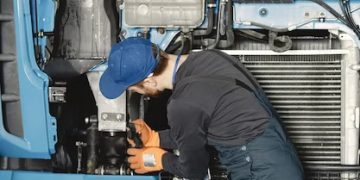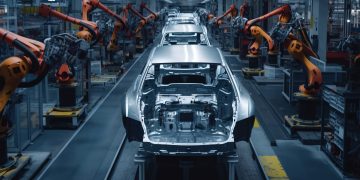The automotive workshop ecosystem in India is a complex and multifaceted network of people, businesses, and organisations that work together to ensure that vehicles are repaired and maintained to a high standard in the country. This ecosystem includes a wide range of different components and stakeholders, all of which play a vital role in the functioning and success of automotive workshops in India.
Automotive workshops are a critical component of the automotive industry, as they provide the necessary services to keep vehicles in good working order and ensure that they are safe to operate on the road. In addition to providing repair and maintenance services, automotive workshops may also play a role in training technicians and apprentices. Many workshops have programmes in place to train and develop the skills of their technicians, helping to ensure that they are up-to-date on the latest technologies and techniques in the automotive industry.
The automotive workshop ecosystem includes a wide range of different components and stakeholders, including:
l Automotive technicians: Automotive technicians are the skilled professionals who work in automotive workshops, performing repairs and maintenance tasks on vehicles. They may be specialised in a particular area, such as mechanical repairs, electrical work, or body repairs. To become an automotive technician, individuals typically need to complete a formal training programme, which may be offered through a trade school, community college, or technical institute. Automotive Skill Development Council (ASDC) offers a range of skill training programmes, including short-term courses, long-term courses, and apprenticeship programmes.
l Automotive workshop owners and managers: Automotive workshop owners and managers are responsible for running and managing the day-to-day operations of an automotive workshop. This may include hiring technicians, managing budgets, and overseeing the overall quality of the work being performed. Workshop owners and managers may also be responsible for marketing the business to attract new customers, as well as building relationships with suppliers and other stakeholders in the automotive industry.
l Automotive parts suppliers: In order to perform repairs and maintenance tasks, automotive technicians in India rely on a steady supply of parts and components. These are provided by automotive parts suppliers, who may offer OEM (original equipment manufacturer) parts, aftermarket parts, or both. OEM parts are made by the same manufacturer that built the vehicle, while aftermarket parts are produced by third-party companies. Automotive parts suppliers in India work closely with workshops to ensure that they have a steady supply of the parts that they need to perform repairs and maintenance tasks.
l Vehicle owners: Very important part of the automotive workshop ecosystem in India are the vehicle owners who bring their vehicles in for repairs and maintenance. These may be private individuals or commercial fleet operators, and they rely on the services of automotive workshops to keep their vehicles in good working order. Vehicle owners in India typically have a range of different options when it comes to selecting a workshop, and they may choose a workshop based on factors such as location, price, and reputation.
l Automotive industry organisations: The automotive workshop ecosystem in India also includes several professional organisations that represent the interests of the automotive industry, including workshops. Examples of these organisations include the All-India Automobile Workshop Association (AIAWA) and the Automotive Component Manufacturers Association of India (ACMA). These organisations work to promote the interests of the automotive industry in India and provide support and resources to workshops and technicians.
l Automotive manufacturers: Automotive manufacturers are another key component of the automotive workshop ecosystem in India. These are the companies that design and build vehicles, and they often work closely with workshops to provide training and technical support, as well as to offer warranties and other services. Some of the major automotive manufacturers operating in India include Maruti Suzuki, Tata Motors, and Mahindra & Mahindra. These companies have a significant presence in the Indian market and play a significant role in the development of the automotive industry in the country.
l Government agencies: Automotives Workshop ecosystem also includes a range of government agencies that are responsible for regulating the industry and enforcing safety and environmental regulations. These agencies may be responsible for issuing licenses and certifications to automotive workshops and technicians, as well as conducting inspections to ensure that they are operating in compliance with the law. The Ministry of Road Transport and Highways is the primary government agency responsible for regulating the automotive industry in India.
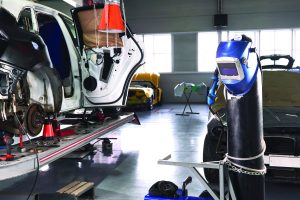
Market size of Automotive Workshops
The market size of the automotive workshop industry in India is difficult to quantify with a single number, as it depends on a wide range of factors such as the size of the vehicle fleet, the demand for repairs and maintenance services, and the number of automotive workshops operating in the country. However, the automotive industry in India is a significant contributor to the economy, and it is likely that the automotive workshop industry plays a significant role in this sector.
According to data from the Society of Indian Automobile Manufacturers (SIAM), the automotive industry in India contributed 7.5% to the country’s Gross Domestic Product (GDP). This includes the contribution of the automotive workshop industry, as well as other sectors such as vehicle manufacturing, parts manufacturing, and sales and distribution.
In terms of the number of vehicles on the road in India, the country has a large and growing fleet. According to data from the Ministry of Road Transport and Highways, released by PIB in July 2022, there are a total of 13,34,385 electric vehicles and 27,81,69,631 non-electric vehicles in use in India. This includes a wide range of vehicles, including cars, trucks, buses, and motorcycles. As the number of vehicles on the road in India continues to increase, it is likely that the demand for automotive workshop services will also increase.
Why Workshop Ecosystem is Required in India?
In India, as in other countries, vehicles are a vital mode of transportation for individuals and businesses. They are used for a wide range of purposes, including commuting, transporting goods, and providing transportation services. To keep these vehicles in good working order and to ensure that they are safe to operate, they need to be regularly repaired and maintained. There are several reasons why the automotive workshop ecosystem is important in India:
l To meet the demand for repairs and maintenance: There is a high demand for automotive repairs and maintenance in India, as the country has a large population and a growing middle class that is increasingly able to afford to own and operate vehicles. Automotive workshops provide a place for vehicles to be repaired and maintained, helping to ensure that they are operating safely and efficiently on the road.
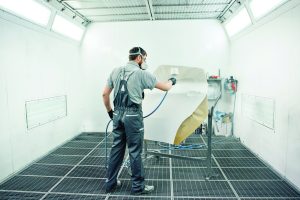
l To support the growth of the automotive industry: The automotive industry is a key contributor to the Indian economy, and the workshop ecosystem plays a vital role in supporting its growth. Automotive workshops provide employment opportunities and generate revenue, which helps to drive the overall growth of the industry.
l To promote the development of skills: The automotive workshop ecosystem provides opportunities for individuals to develop the skills needed to work in the industry. This includes providing training and certification programmes, as well as apprenticeship opportunities, which help to ensure that the industry has a skilled and qualified workforce.
l To improve safety and environmental standards: Automotive workshops play a role in ensuring that vehicles are operating safely and in compliance with environmental regulations. This helps to reduce the risk of accidents and protect the environment, which are important considerations in a country with a large and growing population.
Role of ASDC in Automotive Workshop Ecosystem
The automotive workshop ecosystem is an important part of the automotive industry in India, as it helps to support the growth of the industry, provide employment opportunities, and ensure that vehicles are operating safely and efficiently on the road. The Automotive Skill Development Council (ASDC) is an Indian government-supported organisation that was established to promote the development of skills in the automotive sector. The ASDC offers a range of skill training programmes, including short-term courses, long-term courses, and apprenticeship programmes.
ASDC offers a total of 50 job roles in the manufacturing sector, 13 job roles in research and development, 10 job roles in road transportation, 11 job roles in sales, and 26 job roles in service. These QPs are designed to provide individuals with the knowledge and skills needed to succeed in various roles within the automotive industry, including roles in manufacturing, production, design, engineering, repair and maintenance, and sales and service. The ASDC also offers certification programmes for individuals who want to demonstrate their skills and knowledge to potential employers.
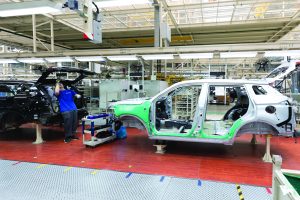
Future of Automotive Workshop Ecosystem
The future of the automotive workshop industry in India is expected to be shaped by a few factors, including technological advancements, changes in consumer preferences, and shifts in the regulatory environment.
One major trend that is likely to shape the future of the automotive workshop industry in India is the increasing adoption of electric vehicles (EVs). As the popularity of EVs grows, automotive workshops will need to be equipped to handle the maintenance and repair of these vehicles, which may require specialised training and equipment. This could lead to a shift in the types of services that automotive workshops offer, as well as the skills and expertise of their technicians.
Another trend that is likely to impact the automotive workshop industry in India is the increasing use of digital technologies. Workshops are already starting to adopt technologies such as diagnostic tools, online booking platforms, and customer management systems to improve efficiency and enhance the customer experience. As these technologies become more widespread, they are likely to transform the way that automotive workshops operate and interact with their customers.
Finally, changes in the regulatory environment are also likely to impact the future of the automotive workshop industry in India. For example, stricter emissions standards and increased focus on safety and sustainability may lead to new requirements for workshops in terms of the services they offer and the way they operate.
The automotive workshop ecosystem in India is a complex network of people, businesses, and organisations that work together to ensure that vehicles are repaired and maintained to a high standard. This ecosystem includes automotive technicians, workshop owners and managers, automotive parts suppliers, vehicle owners, and industry organisations, all of which play a vital role in the functioning and success of automotive workshops in India.
Author:-

Akash Gupta
Regional Coordinator
East & North East for the Automotive Skill Development Council (ASDC)





































